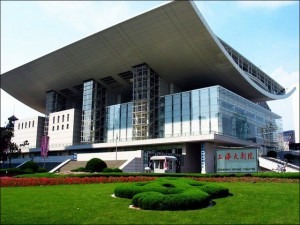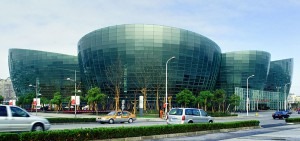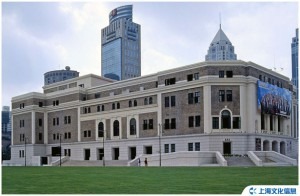
Shanghai Grand Theatre
It was certainly not the first time the Shanghai Grand Theatre screened an HD film of an opera or theatre production. It has in recent years presented quite a few operas on the HD screen including Madame Butterfly, Aida, and so forth. Many praised the Grand Theatre for keeping up with the times since its first HD screenings. But this kind of programme is becoming too frequent, and I somehow suspect the SGT of forgetting their fundamental purpose of staging live performances.
To be clear, I don’t reject the idea of HD opera. But you don’t see the Royal Opera or The Met or most of the world’s other opera houses abandoning their mandate to produce and present live opera on stage. On the contrary, their HD opera films see wide releases in cinemas. I presume that is the ultimate purpose of HD opera, because the cinema is indeed relatively more popular and affordable for the general public.
Let us remember that the Shanghai Grand Theatre is still a theatre. However, in recent years it has been screening HD films (even if they are operas or theatre productions) and renting its hall out with increasing frequency, while presenting fewer of its own productions. One can’t help but wonder whether the venue is beginning to see itself as a hall for hire. Or perhaps a cinema? SGT’s most recent production was La Bohème in collaboration with the Salzburg Festival. Sadly, there was nothing really worth mentioning about it except the clumsy set-up and singing.

Oriental Art Center
But years passed, and many new venues were built – the National Centre, Guangzhou Opera House, Oriental Art Centre – all seeking different ways to create a brand of their own. Take the Oriental Art Centre as an example. Although it is located in the Pudong area, which is relatively remote from the centre, the hall quickly gained a loyal following. It has come a long way from its humble beginnings, when taxi drivers and audiences didn’t even know where it was. Nowadays, the OAC springs to mind whenever music fans want tickets for classical concerts.
Meanwhile, the Shanghai Grand Theatre, located in its prime spot at the very heart of the city, is gradually losing its mark on the map. It still presents concerts, musicals and now films as well, but most of the time it rents out its hall because it can make more money that way. Audiences remain largely unaware of who is presenting the show or concert, caring only that it is being shown at the Shanghai Grand Theatre. As compared with other major venues, the number of productions staged by the SGT itself is appalling.
It has been obvious for quite some time that the SGT is resting on its laurels, and have stopped striving for improvement. In this day and age, with so many competing venues for musicals, concerts, dance, theatre and operas, one wonders about the future direction of SGT’s programming.

Shanghai Concert Hall
Many of you may be more open-minded on this subject than I. Forgive me for being old fashioned, but I believe that a theatre or concert hall is built for the purpose of live performance, and should be used for such. If people want to watch films, they can go to the cinema. If they want to get married, they can book a banquet hall at a hotel. Great live performances and stage work are an unsurpassed art form. A powerful live performance can shock people and create unforgettable memories because of its unmediated nature, free of cinematic tricks or reshoots or any form of editing. The strength of the performance lies solely on the artists performing in front of us. We sit there and absorb the full emotional impact of a performance, each experiencing something subtly different, yet still unified.




